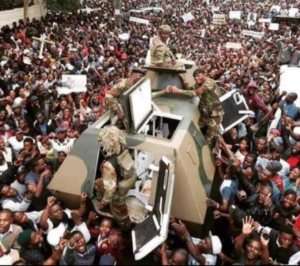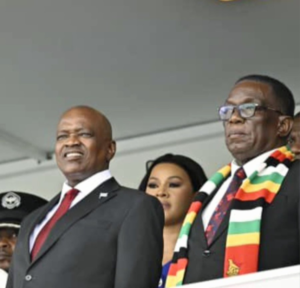A DEEP DIVE INTO PERVASIVE CORRUPTION AND HUMAN RIGHTS VIOLATIONS

In Zimbabwe, the landscape of justice and governance is marred by significant and widespread corruption, compounded by severe human rights abuses, according to the 2023 Country Reports on Human Rights Practices. This analysis presents a grim picture of systemic failure, from petty corruption at the hands of local officials to grand corruption involving high-ranking political elites, creating a climate of impunity and despair among the populace.
Petty corruption, characterized by the everyday misuse of power by lower and middle-level public officials, continues unabated. Police and local government officials are often implicated in these smaller-scale corrupt activities that directly affect the lives of ordinary Zimbabweans. Meanwhile, the top echelons of political power indulge in grand corruption, with high-level officials engaging in large-scale financial crimes, including smuggling and money laundering.
The report highlights the existence of specialized anti-corruption courts across Zimbabwe’s 10 provinces designed to combat these corrupt practices. However, these institutions face numerous challenges, including perceived political interference, protracted delays in concluding high-profile cases, and a general lack of thorough investigations. A practice described as “catch and release” illustrates the inefficacy of these measures, where corrupt officials are occasionally arrested but seldom convicted, undermining public trust in the legal system.
Notably, the Zimbabwe Anti-Corruption Commission (ZACC), though equipped with the mandate to arrest, lacks prosecutorial power, further complicating its ability to bring culprits to justice. In 2022, ZACC recorded a decrease in corruption complaints by 38% compared to the previous year, yet the actual effectiveness of their interventions remains questionable.
Adding to the country’s woes, an investigative documentary by Al Jazeera titled ‘Gold Mafia’ exposed a network involving high-ranking officials engaged in the smuggling of gold and laundering of money through foreign banks. These revelations implicated figures close to President Emmerson Mnangagwa, illustrating the deep-rooted nature of corruption that transcends national borders.
The human rights situation is equally dire, especially within penal institutions. Overcrowding, inadequate food and water supply, unsanitary conditions, and instances of physical abuse paint a harrowing picture of life in Zimbabwe’s prisons. Reports indicate that facilities like Harare Remand Prison are significantly overpopulated, with prisoners subjected to daily violence and inhumane treatment.
Children under four, living with their incarcerated mothers, share the minimal food allocations provided, highlighting a grave oversight in the welfare of the youngest inmates. Such conditions not only violate basic human rights but also underscore the government’s disregard for its most vulnerable populations.
The landscape of human rights extends beyond prison walls to the political arena, where illegal and politically motivated killings remain unchecked. Instances such as the killing of Persuade Mandara and the abduction and subsequent death of opposition activist Tapfumaneyi Masaya during the election period exemplify the extreme measures taken against perceived political threats.
Furthermore, the government has been accused of harassing non-governmental organizations (NGOs), viewing them as adversaries rather than partners in governance. Surveillance, raids, and arrests of human rights defenders are common, with state media and social platforms actively participating in campaigns against NGOs, especially those funded by Western entities.
As Zimbabwe navigates through its electoral processes, the intimidation of voters, particularly in rural areas by entities like Forever Associates Zimbabwe (Faz), affiliated with national intelligence, remains a critical concern. These actions, aimed at influencing electoral outcomes, highlight the ongoing challenges in achieving a fair and democratic society.
In conclusion, the state of human rights and justice in Zimbabwe is deeply troubling, with systemic corruption and widespread abuses reflecting a profound crisis of governance. As international and local voices continue to call for reform, the path forward remains fraught with challenges, necessitating concerted efforts for meaningful change.



